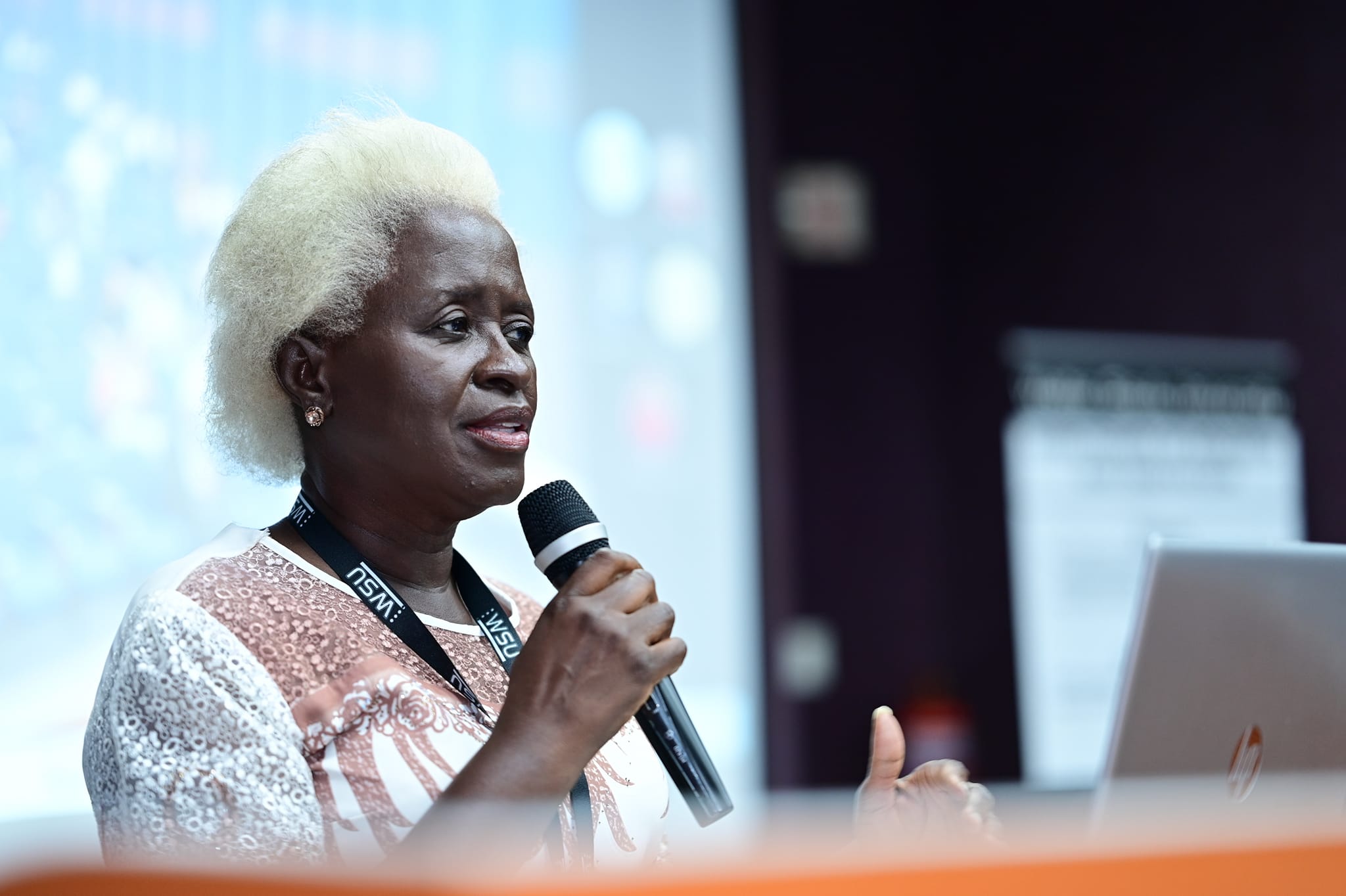4IR AT THE CENTRE OF INSTITUTIONAL RESEARCH AND INNOVATION DAY

The Directorate of Research and Innovation (DRI) recently held an Institutional Research and Innovation Day at the Mthatha Campus with the institution’s top researchers interrogating the theme: Shaping the future of society through Research and Innovation.
This year, academics, students and researchers sought to have a robust and multifaceted engagement on how they handled changes after COVID-19, including how the research community can help shape the future of Research and Innovation to still meet societal needs in the new reality.
Acting Deputy Vice-Chancellor, Professor Mashudu Davhana-Maselesele, said: “I am encouraged by where Walter Sisulu University comes from. I see each of you as architects of progress, guardians of knowledge and the driving force behind innovation. You being here means that where others do not see the value of research, you have chosen to tread the challenges of research without looking at the circumstances of research.”
Davhana-Maselesele further added that researchers have committed their time, intellect and passion to unravel the mysteries around various communities.
“Research requires resilience in the face of setbacks. It requires perseverance when the path seems daunting. That same research requires courage to challenge the status quo. In the journey of pursuing excellence as the university, may you always remember that you are not alone,” said Davhana-Maselesele.
The Research and Innovation Day had four breakaway session under the subthemes:
- Adapting to the Changing Landscape in Teaching and Learning,
- Knowledge Society for Sustainable Development,
- and Research, Innovations Beyond Borders: Exploring African Perspectives
- and Advancing Knowledge from Multidisciplinary Perspectives in Research and Innovation
Acting Senior Director, Directorate of Research and Innovation, Professor Thobeka Ncanywa, said: “Our university has accelerated exponentially in terms of research output. In 2015 we had 49.07 units of research output, in 2022 we had 362.88 units of research output.”
Ncanywa further added that the university has 801 permanent academic staff that are expected to contribute to research. That means that each academic is expected to contribute a unit of research which will result in 801 units of research output.
The research day ended with recognition awards for all researchers with outstanding research impact on the university and community.
By Anita Roji
